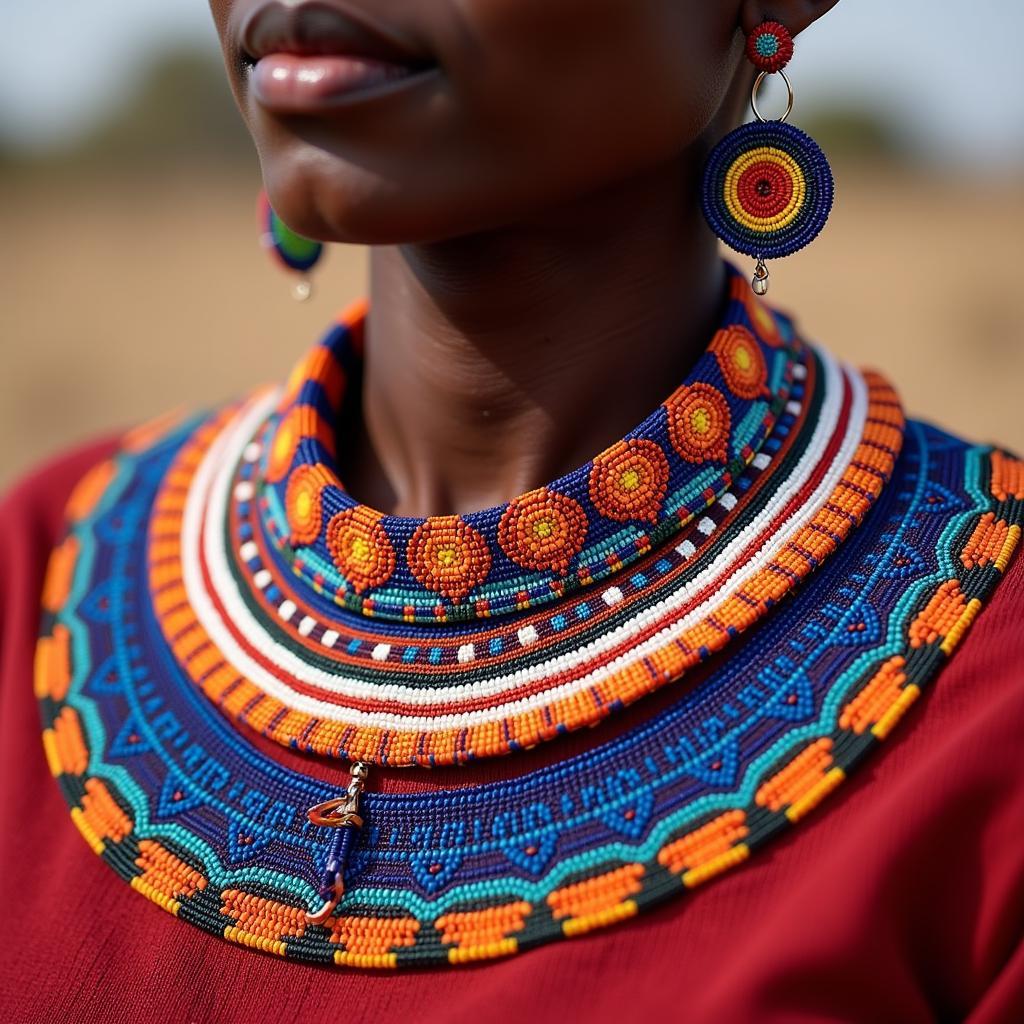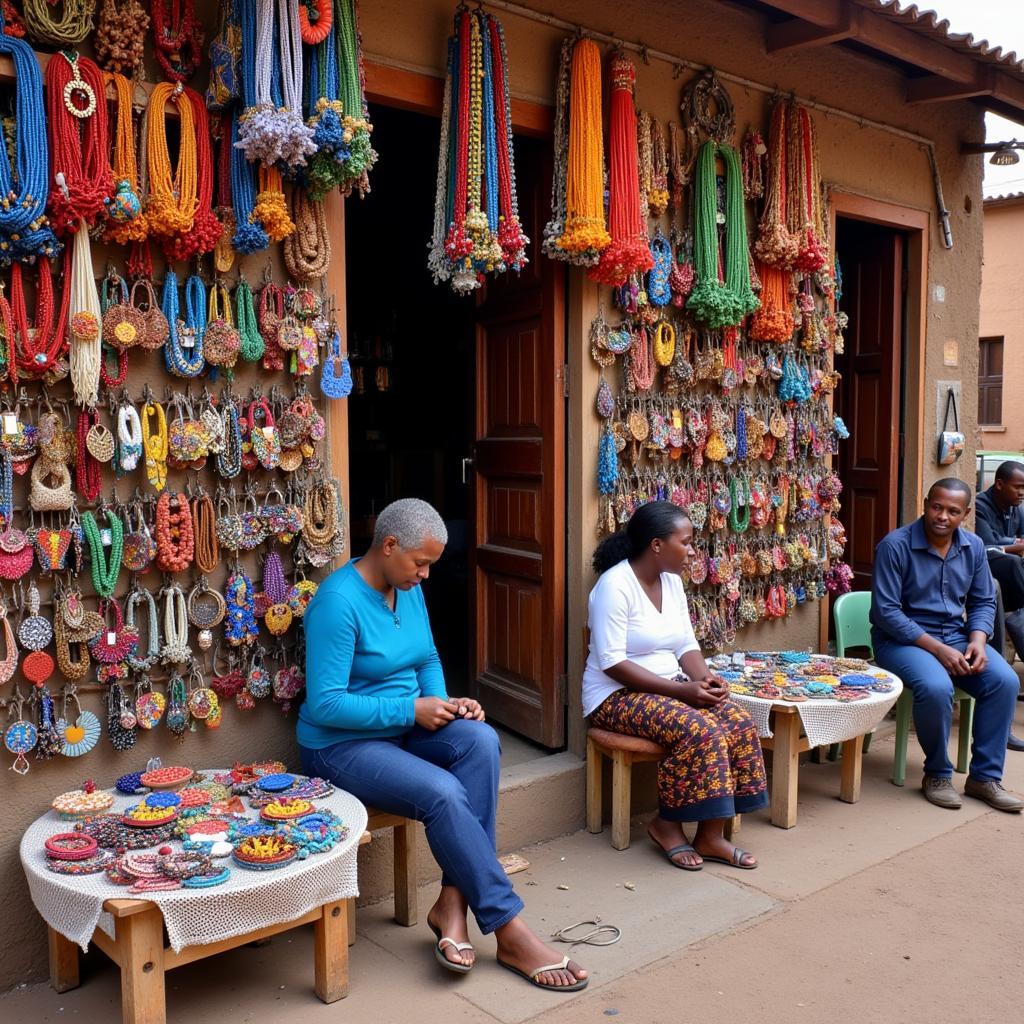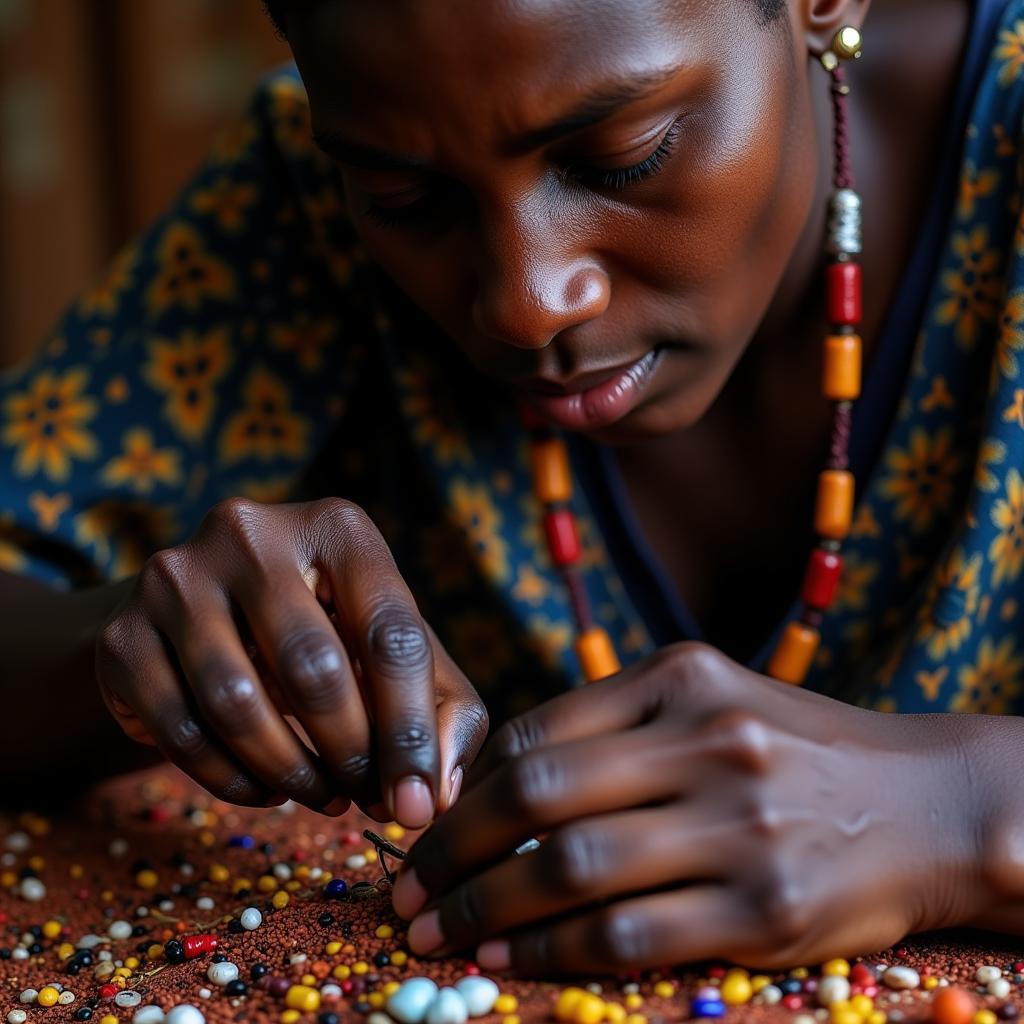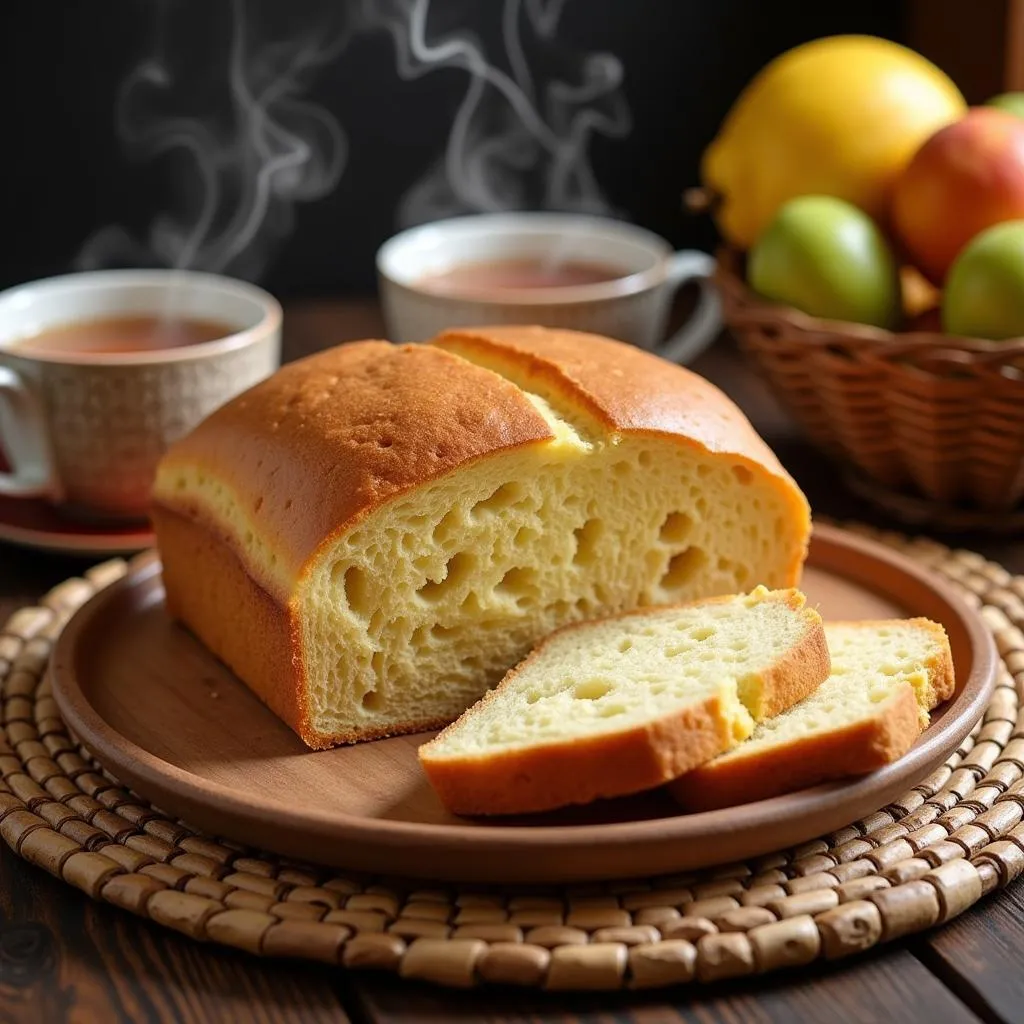African Beadwork for Sale: Discover the Beauty and Craftsmanship
African beadwork is more than just colorful adornment; it’s a vibrant tapestry of culture, history, and tradition. Each intricate design tells a story, whispers ancient secrets, and showcases the exceptional skills passed down through generations of artisans. Whether you’re a seasoned collector or just starting to explore the world of African art, purchasing authentic African beadwork is a way to own a piece of this rich heritage while supporting local artisans.
The Significance of African Beadwork
From the Maasai tribes of East Africa to the Zulu people of South Africa, beadwork holds a significant place in various cultures across the continent. The colors, patterns, and designs often hold symbolic meaning, communicating social status, age, marital status, or even spiritual beliefs. For example, red beads in Maasai culture represent bravery and warriorhood, while white symbolizes purity and peace.  Maasai Beadwork Necklace
Maasai Beadwork Necklace
Beadwork is not merely decorative; it plays a vital role in ceremonies, rituals, and everyday life. Elaborate beaded headdresses are worn during traditional dances, beaded necklaces serve as symbols of wealth and prestige, and beaded adornments on clothing signify cultural identity and pride.
Finding Authentic African Beadwork for Sale
The increasing popularity of African beadwork has led to a surge in both genuine and imitation pieces flooding the market. To ensure you’re investing in authentic craftsmanship and supporting ethical trade practices, consider these factors:
Materials and Techniques:
Traditional African beadwork uses a variety of materials, including:
- Glass beads: These beads, often imported from Europe in the past, are now widely produced in Africa and come in a dazzling array of colors and finishes.
- Bone and horn: These natural materials add a unique texture and earthy tone to the beadwork.
- Metal: Brass, copper, and silver are often incorporated to create pendants, clasps, and decorative elements.
- Seeds and shells: These readily available natural elements add a touch of rustic charm and reflect a connection to the environment.
Pay attention to the beading techniques used. Traditional methods like loom weaving, netting, and stringing require immense skill and precision.
Where to Buy:
- Reputable online marketplaces: Websites specializing in handcrafted goods often feature authentic African beadwork directly from artisans or ethical sellers. Look for platforms that provide information about the artists, their communities, and their craft.
- Fair trade organizations: These organizations work directly with artisans, ensuring fair wages and ethical production processes.
- Cultural centers and museums: Many museums and cultural institutions host shops that sell authentic African art, including beadwork, sourced ethically.
- Traveling to Africa: Experiencing the vibrant markets and craft centers firsthand allows you to interact directly with artisans, learn about their craft, and purchase unique pieces.
 African Beadwork Market
African Beadwork Market
Choosing the Perfect Piece
With such a diverse range of styles and designs, finding the perfect piece of African beadwork can be an exciting journey.
Consider the following:
- Purpose: Are you looking for a statement necklace, a delicate bracelet, or a vibrant wall hanging?
- Color palette: African beadwork comes in a rainbow of hues, each carrying its own symbolism and cultural significance.
- Design elements: From geometric patterns to intricate floral motifs, there’s a design to match every taste and aesthetic.
- Your personal connection: Choose a piece that speaks to you, evokes an emotion, or tells a story you resonate with.
Authentic African beadwork is more than just jewelry or art; it’s an investment in cultural preservation, a testament to the creativity of African artisans, and a stunning addition to any collection. By purchasing authentic pieces, you’re not only acquiring beautiful objects but also contributing to the livelihoods of talented artisans and ensuring the legacy of these ancient traditions lives on.
Frequently Asked Questions
1. How can I tell if African beadwork is authentic?
Authentic beadwork typically features high-quality materials, intricate craftsmanship, and attention to detail. Look for natural materials like bone or horn, and pay close attention to the beading techniques. Avoid pieces with uneven stitching, glued beads, or mass-produced designs.
2. How should I care for my African beadwork?
Store your beadwork in a cool, dry place away from direct sunlight. Avoid exposing it to harsh chemicals or perfumes. Clean gently with a soft, damp cloth.
3. Can I wear African beadwork with modern clothing?
Absolutely! African beadwork is incredibly versatile and can complement a wide range of styles, from casual to formal wear.
4. What are some popular types of African beadwork?
Popular types include intricate necklaces, vibrant bracelets, beaded belts, colorful earrings, and elaborate headdresses.
5. How are the prices for African beadwork determined?
Prices vary based on factors like the materials used, the complexity of the design, the time taken to create the piece, and the artisan’s skill level.  African Beadwork Artisan
African Beadwork Artisan
Explore More African Craftsmanship
Interested in learning more about African arts and crafts? Explore these related articles:
- African cloth dolls: Discover the beauty and cultural significance of these handcrafted treasures.
- African hair rings: Learn about the history and significance of these unique hair adornments.
Investing in African beadwork is an enriching experience. It’s a journey into the heart of African culture and a chance to own a piece of artistry that reflects generations of tradition and heritage.
Contact us today for any assistance:
Phone Number: +255768904061
Email: kaka.mag@gmail.com
Address: Mbarali DC Mawindi, Kangaga, Tanzania
Our dedicated customer service team is available 24/7 to assist you.



